 | Thomas Reid - 1815 - 474 pages
...by employing it in, or withholding it from any partieular aetion." It may more briefly be defined, The determination of the mind to do, or not to do something whieh we eoneeive to be in our power. If this were given as a strietly logieal definition, it would... | |
 | Thomas Reid - 1822 - 322 pages
...by employing it in, or withholding it from any particular action." It may more briefly be defined. The determination of the mind to do, or not to do something which we conceive to be in our power. If this were given as a strictly logical definition, it would be liable to this objection, that the... | |
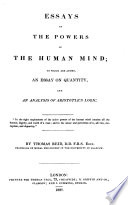 | Thomas Reid - 1827 - 706 pages
...by employing it in, or withholding it from, any particular action." It may more briefly be defined, The determination of the mind to do, or not to do something which we conceive to be in our power. If this were given as a strictly logical definition, it would be liable to this objection, that the... | |
 | Dugald Stewart - 1829 - 662 pages
...employing it in, or withholding it from any particular action." Dr. Reid defines it more briefly to be, " the determination of the mind to do or not to do something which we conceive to be in our power." He remaiks, at the same time, that " this definition u not strictly logical, inasmuch as /he determination... | |
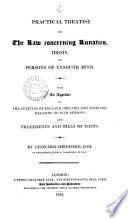 | Leonard Shelford - 1833 - 964 pages
...will is put indifferently to signify either the power of willing or the act. It may be briefly defined the determination of the mind to do, or not to do, something which we conceive to be in our power. Every act of the will must have an object — the immediate object of will must be some action of our... | |
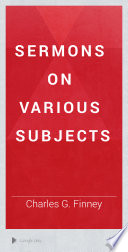 | Charles G. Finney - 1835 - 112 pages
...forth such mental and bodily acts. This is Reid's use of the terms, who describes an act of will as " a determination of the mind to do or not to do something which we conceive to be in our power." And this is the use of the term by a large portion of the class of theologians who style themselves... | |
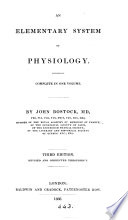 | John Bostock - 1836 - 924 pages
...the nature of the first two, and equally so of the manner in which the three are connected together1. to do or not to do something which we conceive to be in our power ; " On the Active Powers, p. 60. Volition, as appears by these definitions, applies both to the physical... | |
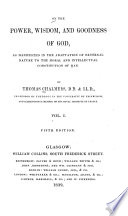 | Thomas Chalmers - 1839 - 600 pages
...willing. But the act of willing has been further expressed by a term appropriated wholly to itself—and that is, volition. Mr. Locke defines volition to be...the same time, from giving any other more logical definition—on the plea, that simple acts of the mind do not admit of one. 5. There is certainly a... | |
 | Henry Philip Tappan - 1839 - 312 pages
...regarding it as a contingent cause — "a power to do, or not to do,"* — or a faculty of determining " to do, or not to do something which we conceive to be in our power." t We may here inquire wherein lies the necessity of a cause opposed to a contingent cause 1 Its necessity... | |
 | Henry Philip Tappan - 1839 - 312 pages
...regarding it as a contingent cause — "a power to do, or not to do,"* — or a faculty of determining " to do, or not to do something which we conceive to be in our power." f We may here inquire wherein lies the necessity of a cause opposed to a contingent cause ? Its necessity... | |
| |